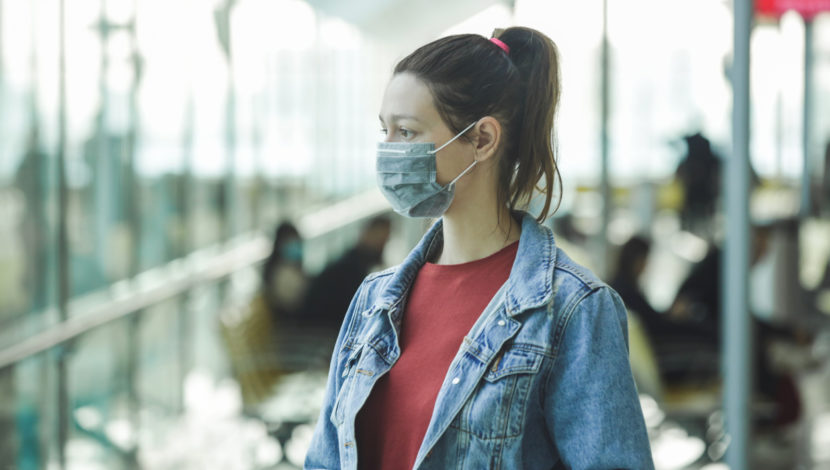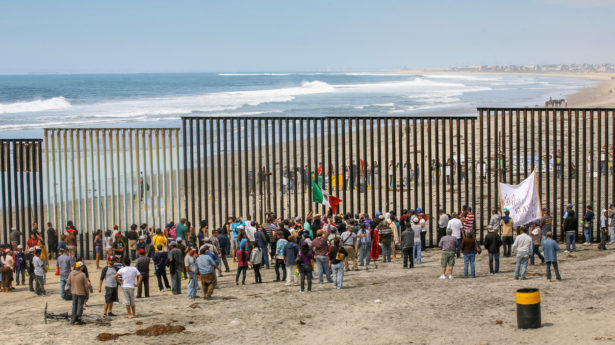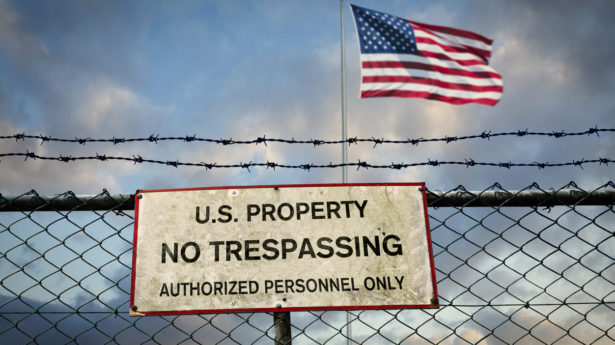The Unitarian Universalist Service Committee advances human rights through grassroots collaborations.
Protecting Human Rights During the COVID-19 Outbreak

By on March 16, 2020
This past week, people around the globe woke up to a radically changed society. Whether facing impacts from the virus on our health or livelihood, caring for children who have been sent home from school, seeing price hikes for basic necessities, grappling with heightened risks from experiencing homelessness or being undocumented, or incarcerated, or feeling the effects of loneliness and isolation from being quarantined, we are daily experiencing the effects of the COVID-19.
In times of crisis, it is easy to get lost in focusing on our immediate needs, without feeling like we have room for big-picture concerns such as human rights. In truth, however, our immediate needs are deeply connected to our human rights. It is precisely in such periods of global distress that human rights protections are most needed. It is also moments like this that most call for coordinated actions in solidarity with others to uphold these rights. Here are ways we can take action now to promote human rights in a time of crisis.
Call on Public Officials to Ensure Universal and Unrestricted Access to Essential Services
Everyone has a human right to resources necessary to secure their health and wellbeing. In spite of this, public crises like COVID-19 magnify inequities in our society in ways that place some of our communities at greater risk. As the National Day Laborer Network warns in their Worker & Migrant Justice Response to the Coronavirus, “we fear that vulnerable populations including undocumented migrant workers, poor people, and refugees will be deemed acceptable collateral damage by forces that view them as less than human.” At times like this, it is more important than ever to emphasize that no one is disposable: public health means safeguarding the rights and wellbeing of us all.
Our public officials need to hear from us that any policies that interfere with the access of some members of our communities to essential services are unacceptable and morally abhorrent.
As many people find themselves with increased time at home in the coming days and weeks, consider calling or writing to public officials to share the following asks:
- To state and local officials, including local offices of federal immigration agencies (ICE, e.g.) (the following asks inspired by recommendations prepared by the Boston Immigration Justice Accompaniment Network):
- Respect the sensitive locations policy and ensure there are no ICE raids at or near healthcare facilities, schools, or places of worship (that are still open).
- Declare all public health facilities and local government offices ICE-free zones.
- Release all people from immigration jails and detention centers, where they are at heightened risk of rapid transmission of the virus.
- Suspend all check-ins at local ICE offices and provide public notice that there will be no negative repercussions for missed court dates or check-ins during the time of the outbreak.
- To Members of Congress:
- Promptly pass measures needed to protect livelihoods and living standards in the wake of economic disruption, expand access to nutrition assistance and healthcare services for people most at risk, and ensure adequate testing and other public health measures.
- Pass the Protecting Sensitive Locations Act (H.R. 1011) to limit immigration enforcement activities at or near healthcare facilities.
- Significantly cut funding for ICE detention and deportation, which trap people in dangerous pathogenic conditions and interfere with universal safe access to health facilities.
- Permanently end and defund policies such as Remain in Mexico (a.k.a. MPP) that are trapping people in makeshift camps near the U.S.-Mexico border where, in addition to other perils, they are at heightened risk of exposure to and transmission of the virus.
Oppose Bigotry, Xenophobia, and Racism in All Forms
Since the start of the COVID-19 outbreak, our communities have seen a sharp rise in incidents of bigotry, harassment, and discrimination, particularly directed against Asian Americans. This racist response to the outbreak has been fueled by the attempts of U.S. leadership to scapegoat other countries for the virus—even as our own government has placed all humanity at greater risk by its failure to secure prompt and adequate testing for COVID-19 and to take other necessary public health measures.
In recent days, UUSC has worked as part of the new Immigrant Justice Accompaniment Skill-Share Network to collect and share a set of resources on how to promote immigrant justice in the wake of the COVID-19 outbreak, and how to address the pandemic within local grassroots accompaniment networks. Here are some links you can share to counter racist and xenophobic responses to the pandemic and to educate oneself and others on the real facts of the situation:
- Coronavirus fears show how ‘model minority’ Asian Americans become the ‘yellow peril’
- National Queer Asian Pacific Islander Alliance statement (Thank you to Asian American Resource Workshop for the above 2 articles – their full resource list is here)
- Impact of the public charge rule & health care for immigrants – “Immigrants are unlikely to be impacted by public charge or arrested by ICE while getting emergency medical help. But fear and uncertainty could be enough to stop them.”
- Talking About COVID-19: A Call for Racial, Economic, and Health Equity
- No, A Border Wall Won’t Stop Coronavirus
In times like these, the words of the Universal Declaration of Human Rights ring loud and clear: “Everyone has the right to a standard of living adequate for the health and well-being of [them]self and of [their] family, including food, clothing, housing and medical care and necessary social services[.]”
When the world’s nations adopted this declaration in 1948 to codify their aspirations for a better society, they did not say that these rights apply sometimes or under some conditions; they said these rights are universal. In moments of panic and crisis, it is essential we hold our leaders to these promises and ensure a fair and just society for us all.
Photo Credit: iStock – triocean
***
About UUSC: Guided by the belief that all people have inherent worth and dignity, UUSC advances human rights globally by partnering with affected communities who are confronting injustice, mobilizing to challenge oppressive systems, and inspiring and sustaining spiritually grounded activism for justice. We invite you to join us in this journey toward realizing a better future!

